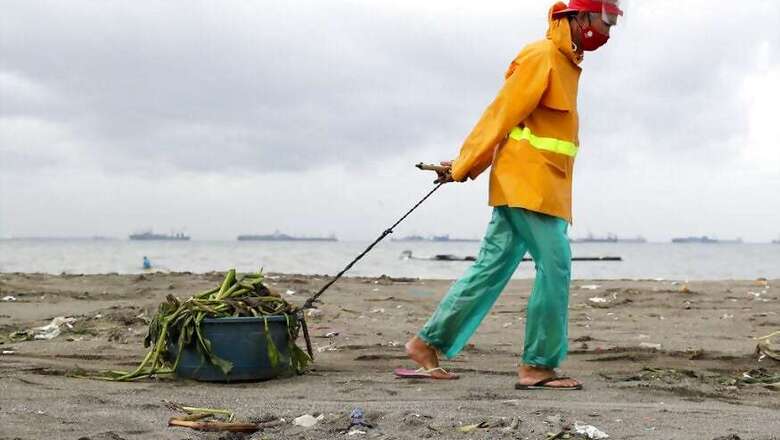
views
The illegal trade of endangered animals continues unabated despite of awareness campaigns and government clampdowns. In one such incident, the Philippines’s Palawan Council for Sustainable Development Staff (PCSDS) collaborated with the Australian Federal Police and busted an illegal trade of 150 tons of fossilized giant clams. Worth nearly $25 million, these giant clams, also known as Taklobi in Filipino, were found on the shores of Sitio Green Island in the western Palawan province.
The law enforcement agency arrested four for violating the Philippine Wildlife Resources Conservation and Protection Act. It is unlawful for someone to "willfully and knowingly exploit wildlife resources and their habitats" for a number of reasons, including trading the wildlife or for the purposes of collection, under Article 27 of the law. Under this law anyone who kills or destroys wildlife species that are categorized as threatened, like the giant clams, could face two years in prison or a fine of $410.
A member of the illegal trading group Rosalee Tequillo was arrested who told the authorities that she and her group are involved in the collection and possession of giant clam species for commercial use. Tequillo also told the authorities that she had permission from the Philippine president's office and the Bureau of Fisheries and Aquatic Resources (BFAR) to collect the shells.
However, PCSDS said that she had no documents to prove this. The extraction of giant clams is allowed only if it is for scientific purposes, however, in this case the trade was deemed illegal for its commercial use.
Giant clams are the largest mollusks that are capable of reaching four feet in length and weighing more than 500 pounds. They are mostly found in the warm waters of the South Pacific and Indian Oceans.
Over the years, they have become one of the most vulnerable marine species in the world. The adductor muscle of the giant clam is considered a delicacy, and their overharvesting for food, shells, and the aquarium trade have endangered their existence.
Read all the Latest News, Breaking News and Coronavirus News here. Follow us on Facebook, Twitter and Telegram.


















Comments
0 comment